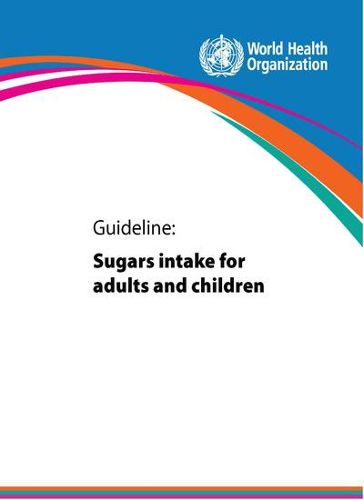Readings Newsletter
Become a Readings Member to make your shopping experience even easier.
Sign in or sign up for free!
You’re not far away from qualifying for FREE standard shipping within Australia
You’ve qualified for FREE standard shipping within Australia
The cart is loading…






The objective of this guideline is to provide recommendations on the consumption of free sugars to reduce the risk of NCDs in adults and children, particularly focusing on the prevention and control of unhealthy weight gain and dental caries. This is, in recognition of the rapidly growing epidemic of overweight and obesity around the globe and its role as a risk factor for several NCDs. In addition, dental caries is the most common NCD and the cost of treatment places a heavy burden on health-care budgets in many countries. The recommendations in this guideline can be used by policy-makers and programme managers to assess current levels of free sugars intake in their countries relative to a benchmark, and to develop measures to decrease free sugars intake, where necessary, through a range of public health interventions. Following the work of the 1989 WHO Study Group on Diet, Nutrition and Prevention of Noncommunicable Diseases, the 2002 joint WHO/FAO Expert Consultation on Diet, Nutrition and the Prevention of Chronic Diseases updated the guidance on the free sugars intake as part of the guidance on population nutrient intake goals for the prevention of noncommunicable diseases (NCDs). Today, debates continue as to whether the available evidence of adverse health effects related to free sugars intake warrants appreciable reduction in free sugars intake. Therefore, it was considered important to review the existing evidence in a systematic manner, and update WHO?s guidance on free sugars intake through the new WHO guideline development process.
$9.00 standard shipping within Australia
FREE standard shipping within Australia for orders over $100.00
Express & International shipping calculated at checkout
The objective of this guideline is to provide recommendations on the consumption of free sugars to reduce the risk of NCDs in adults and children, particularly focusing on the prevention and control of unhealthy weight gain and dental caries. This is, in recognition of the rapidly growing epidemic of overweight and obesity around the globe and its role as a risk factor for several NCDs. In addition, dental caries is the most common NCD and the cost of treatment places a heavy burden on health-care budgets in many countries. The recommendations in this guideline can be used by policy-makers and programme managers to assess current levels of free sugars intake in their countries relative to a benchmark, and to develop measures to decrease free sugars intake, where necessary, through a range of public health interventions. Following the work of the 1989 WHO Study Group on Diet, Nutrition and Prevention of Noncommunicable Diseases, the 2002 joint WHO/FAO Expert Consultation on Diet, Nutrition and the Prevention of Chronic Diseases updated the guidance on the free sugars intake as part of the guidance on population nutrient intake goals for the prevention of noncommunicable diseases (NCDs). Today, debates continue as to whether the available evidence of adverse health effects related to free sugars intake warrants appreciable reduction in free sugars intake. Therefore, it was considered important to review the existing evidence in a systematic manner, and update WHO?s guidance on free sugars intake through the new WHO guideline development process.